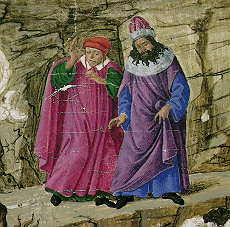Tag: Thomas Aquinas
-
Changing of the Guard
The third dimension of history understood as the impact of imaginal world on human history. Wars, migrations, expansions, conversions, and so on, need to be seen in the light of this higher dimension, above and beyond the material, biological, economic, and ideological causes. We have seen that Julius Evola attributes the movements of human events…
-
Idiot’s Guide to the Modern World
Man can be truly free and himself only when he maintains the centre of his being on a metaphysical plane. When he detaches himself from such a plane and focuses on practical goals, on temporal achievements, and, in general, on whatever was the domain only of lower castes taken in themselves, he abdicates, disintegrates, opens…
-
Doctrine of the Soul
In the Medieval period, the doctrine of the soul reached its deepest understanding in the thought of Thomas Aquinas. This doctrine was adopted, virtually in toto, from Aristotle. Now, Aristotle was the heir to the totality of Greek philosophy and its mysteries. Even if much of that earlier work has now been lost except in…
-

Angels and Demons
A complete understanding of the angelic hierarchy is possible only for the intellect that contains the form, that is, the idea of the angel, that is, it participates in the higher form.
-

Qualitative Civilization
True progress will always respect the line of formal development of man. It will give rise to qualitative civilization such as was the civilization of Greece in the fourth century BC and, in a higher degree, the civilization of Western Europe in the thirteenth century.

